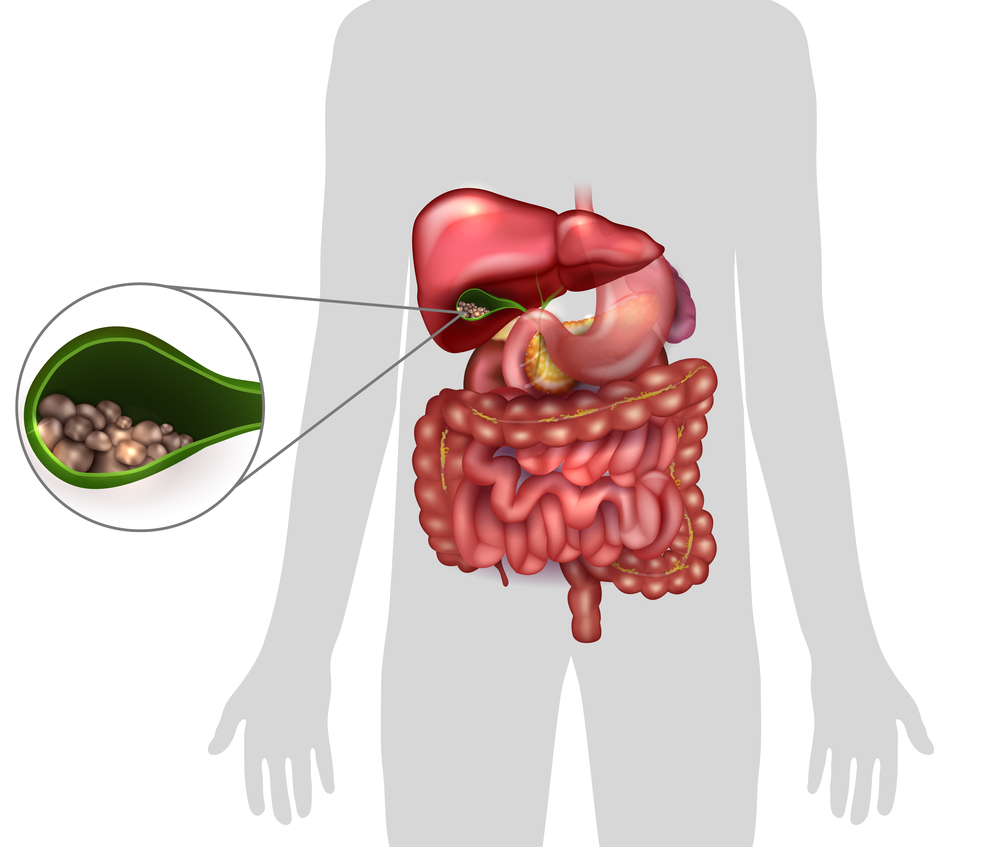Increased Risk of Gallstones in GD1 Patients Linked To Gene Variants
Written by |

Patients with Gaucher disease type 1 (GD1) have a high risk of forming gallstones. Researchers now have connected specific gene variations and other risk factors, such as higher body mass index (BMI) and cholesterol values, to patients with higher occurrence of gallstones.
The study “Cholelithiasis in Patients with Gaucher Disease type 1: Risk Factors and the Role of ABCG5/ABCG8 Gene Variants” was published in The Journal of Gastrointestinal and Liver Diseases.
Gallstones occur in 9.7%-15% of the general population in Western countries and studies suggest that carrying certain gene variants (ABCG5, ABCG8) — genes that control the concentration of cholesterol — increase the risk of gallstones. Also, risk factors, including age, female gender, obesity and insulin resistance, are all believed to enhance the occurrence.
A few studies indicate an increased occurrence of gallstones in patients with Gaucher disease (GD) compared to the general population. Altered lipid profile and insulin resistance may contribute to gallstone production and could be associated with ABCG5 or ABCG8 gene variants, but there are no previous studies investigating the impact of these gene variants in patients with GD1, either with or without gallstones.
A research team searched for possible connections between gallstone production and gene variants of ABCG5 and ABCG8, as well as other disease-specific risk factors in patients with GD1.
The team included all living patients in Romania with GD1 at the time of study, which were 61 adults (38 females; 23 males) aged 18-72 years. They were genotyped and levels of lipids (fat) in the blood were analyzed and matched with 61 healthy people. Former gallstones were diagnosed with ultrasonography.
Results showed that gallstones occurred in 45.9% of the GD1 patients, which is much higher than in the general population. The level of cholesterols (fat) in the blood was increased in the patients with a history of gallstones compared to those without. These levels also were related to specific variants of the genes ABCG5 (GG genotype of D19H) and ABCG8 (CC genotype of T400K ).
The team also found particular risk factors in the patients who experienced gallstones, such as older age, family history of gallstones, higher BMI values, disease severity and former surgery of the spleen, although there was no association with insulin resistance.
Patients with GD show a specific lipid profile, which improves with enzyme replacement therapy (ERT) — the main treatment for GD. This study suggests that carrying the specific gene variants could contribute to increased levels of lipids in the blood that further increase the risk of gallstones. According to the researchers, the risk of gallstones could be reduced if the patients start ERT as soon as possible after clinical onset.



